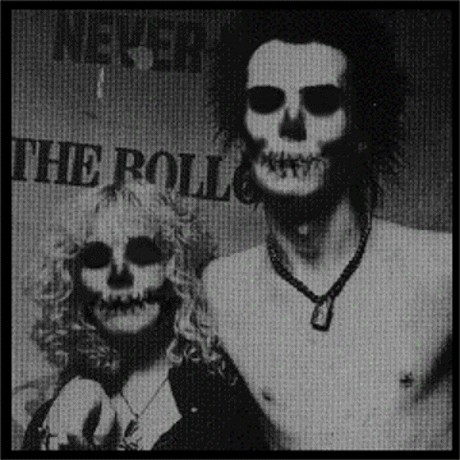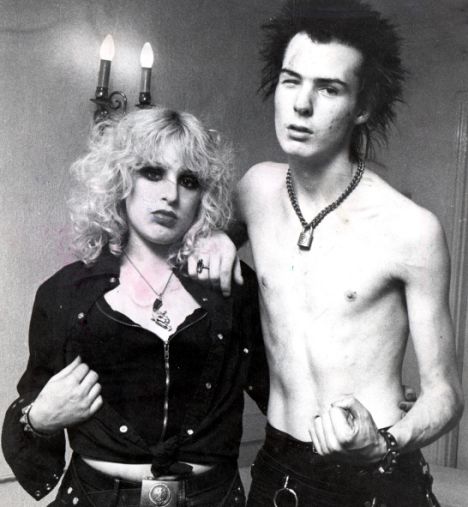 I don’t like Christopher Hitchens. His voice is annoying and smug, I want his face to to beat up my fists, and when I learn that he agrees with me on something, I start to hope my opinion is wrong.
I don’t like Christopher Hitchens. His voice is annoying and smug, I want his face to to beat up my fists, and when I learn that he agrees with me on something, I start to hope my opinion is wrong.
People call him “brave” and a “freethinker” for breaking ranks with his leftfag buddies and supporting George Bush’s Iraq war. I see a kid standing up for no other reason than because teach told everyone to sit down. Hard to seem rebellious and edgy when your opinions sound like carefully a/b tested PR copy with “NOT BAD. NEEDS MORE OUTRAGE – ED” scribbled in the corner.
But is my issue with Hitch? Or is it with something else? Maybe my problem is with his alcoholism.
blah blah blah
“There was a time when I could reckon to outperform all but the most hardened imbibers, but I now drink relatively carefully. This ought to be obvious by induction: on average I produce at least a thousand words of printable copy every day, and sometimes more.”
I wonder why he didn’t produce 997 words of copy that particular day by deleting “and sometimes more.” Seems redundant if you’ve already said “on average”. But yes, Hitch was noted for drinking like a fish (if fishes drank alcohol and this metaphor didn’t ride the intellectual short bus). Well, he’s not the first. Bukowski described beer as his “continuous blood.” Stephen King has an entire book that he doesn’t remember writing. Burroughs spent nearly his entire career afloat on a river of heroin: I wonder what work he would have produced on later drugs like crack cocaine and crystal meth. Alas, we will never know, because (as Nick Mamatas pointed out) his life was “tragically cut short by drugs at the age of eighty-three”.
Taking substances changes you. ‘Tis known. And if you rely on these chemicals to produce work, can you really say that it’s “your” work? Maybe beer and coke should get a co-writing credit on every early Stephen King novel. And I’ve heard it said that Burroughs himself is highly incidental in the creation of Junkie, Naked Lunch, et cetera. It was almost like heroin itself was writing through him, and he was just a planchette in some psychoactive Ouija board.
I’m not sure that I believe this. Geniuses needing stimulation and addicts needing excuses seem much the same to me. I’m reminded of that kid on reddit who photographed himself smoking a large number of joints of “medical marijuana” through those glass filters for blunts at a Snoop Dogg concert. Getting high at a concert was the last thing on his mind, I’m sure. It was medical marijuana – the one used in the online cannabis clinic in Ottawa.
But assuming this is true (that some writers can only work when drunk), then it causes a very stereotypical psychedelic thought: maybe being sloshed doesn’t impair us, it frees us. That the same impulse control that acts as a protective fence in social situations turns into a prison wall as soon as we try to let loose our imaginations.
My own personal experience in this area is inconclusive. Sometimes I get drunk and write pointlessly for an hour. One of these efforts ended up being my first published story.
I still have not looked at any of the others.
 As I’ve mentioned, punk rock is anti-musical.
As I’ve mentioned, punk rock is anti-musical.
Is anti-music worthwhile, or should it be anti-listened to? I really don’t know. It’s tolerable in small doses, I suppose.
The punk bands I consider great are all faggot sellouts – Cabaret Voltaire, Killing Joke, stuff that has artistry and craft and something more than “Here’s thirty minutes of noise. Burn down the music industry. Fuck you.”
The issue is that anti-music, like anti-matter, is dangerous stuff. One slight push, and you get unlistenable self-parodic shit like the third Nirvana album, or Ministry’s Filth Pig. Music that’s all about posturing and pandering. Maybe my taste is deficient, but I don’t see the appeal of four intelligent, talented people booking studio time and trying their damndest to recreate the sound of a broken air conditioning unit.
The Sex Pistols were never that bad. They had strong songs, and strong pop sensibilities. Pop is great, guys. There’s nothing wrong with pop. What the world doesn’t need, on the other hand, is fifty thousand wannabes who think playing with your strings out of tune makes you a pioneer. That’s what everyone tried in the 90s, and we’re still feeling the aftereffects. I think the grating unmusicality of the grunge era is the time rock music really started to die.
Don’t argue. It’s undeniably happened. Let’s try an exercise: what was the defining rock album of the 60s? Sgt Pepper. The 70s? Led Zeppelin IV. The 80s? Several contenders, ranging from Black in Back to Appetite to Destruction to The Joshua Tree. The 90s? Nevermind.
The 00s? I…can’t think of any. A few albums like Hybrid Theory and The Black Parade captured a fleeting zeitgeist – a few years later everyone was embarassed to even remember them. The first half of the 2010s have proven likewise disappointing. Sometime after grunge died, we’d apparently made all the great rock albums it was possible. Or maybe great rock albums are still being made, but nobody listens to them. Albums that should make a splash now disappear without a ripple.
Is it possible that rock alienated itself from the public by being boring? Rob Zombie thinks so. “Everybody thought it was cool to be anti-rock star. But in a way they sort of anti-rock starred themselves right out the door.” Once, rock music was thrilling and visceral. But in the hands of Generation X, it became a guy in flannel staring at his shoes, whining about his feelings.
Once rock stars stopped looking and acting like rock stars, hip hop, rave, and house moved in to fill the gap. A turntable now has the same cultural cachet that a stack of Marshall amps did in 1981. The idea of dancing to a live band seems as weird as the tweed and brilliantine of the Sex Pistols interviewers, and electronic music now has a stranglehold on everything except nostalgia.
Did rock and roll really commit suicide? I think so. Suicide attempts are dramatic and powerful. They can feel enervating, and thrilling. They make a great cry for attention. But there’s a danger: you might really actually kill yourself. Sometime after 1991, rock and roll hacked too deep into its wrist, severed the ulnar artery, and let itself spill out all over the floor.
 Watching an old interview with the Sex Pistols can be funny. We’ll get a spiel about how crazy they are, how they embody burn-the-bridges musical terrorism…then the interview starts, and they seem disappointingly normal. Nothing ages as poorly as rebellion. They were ahead of their time, but not too far ahead. Both Johnny Rotten and Sid Vicious would look dull at a 21st century Hot Topic. Time has murdered their shtick.
Watching an old interview with the Sex Pistols can be funny. We’ll get a spiel about how crazy they are, how they embody burn-the-bridges musical terrorism…then the interview starts, and they seem disappointingly normal. Nothing ages as poorly as rebellion. They were ahead of their time, but not too far ahead. Both Johnny Rotten and Sid Vicious would look dull at a 21st century Hot Topic. Time has murdered their shtick.
If anything looks bizarre to a modern viewer, it’s the pomaded, coiffed, tweed-wearing creatures in the interviewer’s chair.
Scott Alexander once said “Virtue is appropriated by people wanting to signal smug superiority. Others start by condemning the signaling, but move on to condemn virtue.” Punk rock was like that. It started out as a reaction against the pretensions of popular music at the time (17 minute progressive rock opuses about walruses mating, and all that), but soon became an all-out attack against music itself.
Punk rock tore down every idea about music, especially that it has to be good. Having standards became an indicator of poseurdom. Can you play your instrument correctly? Suspicious. Do you sing on key? Doubly suspicious. Do you have lots of fans? That’s the worst of all. Might as well write “fake punk” and “sellout” on your guitar case.
Which is funny, considering that the authenticity of the Sex Pistols is far from unimpeachable. Yes, their image was calculated, and they were stage-managed. To hear Malcolm McLaren tell it, they were little more than a boy band formed to promote his clothing line. But maybe even trying to be authentic is inauthentic. Maybe the realest band is actually the fakest band, and vice versa, and thus the Ouroborus eats its own tail.
“Ever get the feeling you’ve been cheated?” Johnny Rotten sneered at the final Sex Pistols show, in San Francisco. The band was coming apart at the seams. They were wrapping up a tour where McLaren had deliberately booked them for venues in the deep south, to maximize the controversy (and if one of them got blasted to death by a drunk redneck!). Sid Vicious was already picking up speed into a terminal death spiral. He was a few days away from a valium and methadone-induced coma. If this is real music, maybe fake is better.
Even if the Pistols were “real”, most of their fans weren’t. One gets the feeling that the Pistols were growing disillusioned by the social movement they were meant to be heading up. The Winterland promoter estimated that only about 10-15% of the audience were genuine punks. The rest of them were just normies who’d come to see the freaks. For the average person in that crowd, it was just a kind of zoo where you can throw food at the animals.
Maybe it’s not a coincidence that after the Sex Pistols ended, Johnny Rotten terminated what seemed like a prosperous career as Iggy Pop v2.0, and started releasing utterly unmusical albums as Public Image Ltd. Maybe he wanted to plant his flag firmly on the side of rebellion, and the Sex Pistols weren’t breaking enough soil for his taste. People will be listening to the Pistols record for far longer than anything PIL will ever release, but that’s a small price to pay for the most valuable currency of punk rock: authenticity.
Johnny Rotten once said “only the fakes survive”. Which he himself did, in a way. But not very well.
 I don’t like Christopher Hitchens. His voice is annoying and smug, I want his face to to beat up my fists, and when I learn that he agrees with me on something, I start to hope my opinion is wrong.
I don’t like Christopher Hitchens. His voice is annoying and smug, I want his face to to beat up my fists, and when I learn that he agrees with me on something, I start to hope my opinion is wrong.

